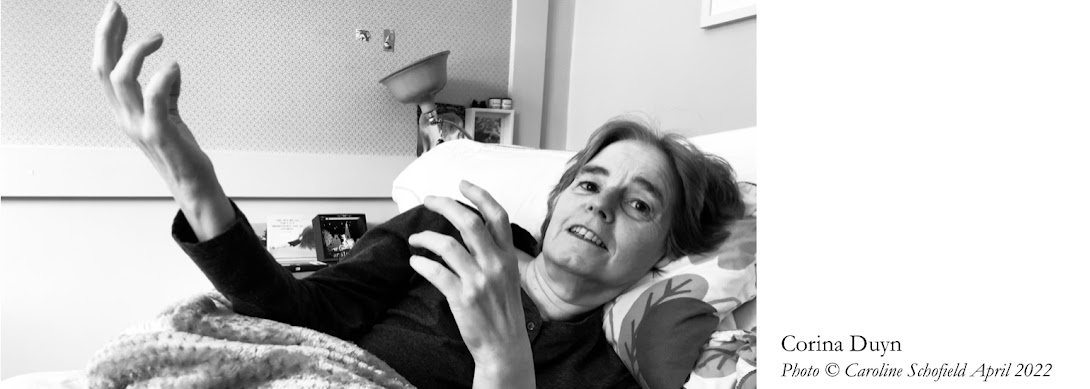Presently I am looking into the possibilities/practicalities of enrolling in a course in College: Disability Studies. I had the most exciting, wonderful, encouraging talk with the course coordinator yesterday.
I think/I know I would like this course, I know I'll be good at it, have lots to learn, have lots to give.
For the next while I will have to look at if I can do it, energy wise, getting to the actual college, and financially.
Talking to the coordinator I remembered this story I wrote a few years ago. It was published in two local papers: The Dungarvan Leader, The Dungarvan Observer, and on the Letters Page of the National paper, The Irish Examiner (under the title "Disability is no laughing matter").
From this publication, I received a letter from a boys class in a secondary school in Middleton, who wrote me a letter of support. They all signed it. It warmed my heart and thought, here are 30 teenagers, who now potentially view people with a disability with more compassion and understanding.
Those
Disabled Look Funny, Don’t They?
Living with a disability can be a
challenge in itself, but sometimes society makes it even harder. Let me give
you an example: I was driving down the road,
and not one, but two people stared at me, and laughed. Not the ‘how are you
doing’ kind of laugh, but more the ‘look at her’ kind. I asked my companion if
my hat was back to front, or was there is something stuck on my face? It
appears that there was nothing out of the ordinary, other than that I was
seated on a mobility scooter. So, what made those people laugh at me?
Why do we stare at anybody
who, in some way, looks different? Let me rephrase that. Why do adults, stare at people who fall
outside of, what they consider, the norm? Children don’t stare, they just ask.
During one of my first outings
in a wheelchair, a young man of about five, walked up to me and asked: “why are
you in a wheelchair?” When I desperately tried to come up with an answer, he
handed me a lifeline: “Are you tired of walking?” It is as good an explanation
as any. Thank you, my little man. I wish adults would do the same. Ask! I don’t
bite and can
talk (for myself).
Years after that enlightening
encounter, I was wheeled into a shopping centre in, which was celebrating it’s
second birthday. A ‘pirate’ ran up to me and was about to give me a kiss and a
handful of sweets. I pushed him, with all my strength, out of my face.
Repeating my verbal response would not be appropriate here.
A few weeks later, my ‘mobilisor’ (wheelchair pusher) was asked:
“what’s wrong with the little one?” I reckon that the questioning man, and
myself, were close in age: both in our forties. I decided to tell him myself:
“I am tired of walking…”
For a while I thought that the
onlooker assumed that the person seated in a wheelchair never progressed beyond
the age of a toddler. The toddler might be allowed to hand over money to
the cashier, but, without fail, the change would be handed over to the ‘mobilisor’. Why?
Life progressed, so did my
form of transport. I bought a mobility scooter. Looks did not stop. They just
changed. On one of my first outings on the scooter, I had a little difficulty
finding a place where I could mount the sidewalk. A young adult seated in a
parked car followed my every move, before she was overcome by convulsions of
laughter. I wanted to tell her that driving a mobility scooter wasn’t what I
would choose either, but it is much better than being housebound and completely
isolated from the outside world.
I hope she will read this.
If you have an interest in this story, you might like these ones:
Winning an Equality Tribunal Case Adventures of refusal of airline to take me on board. (Article published in IWA Spokeout Magazine '12)
When living with a disability Ireland is a different country (article published in online newspaper Journal.ie

No comments:
Post a Comment
It is always so lovely to hear from my readers.
Thank you for stopping by and leaving a comment.
With every best wish
Corina